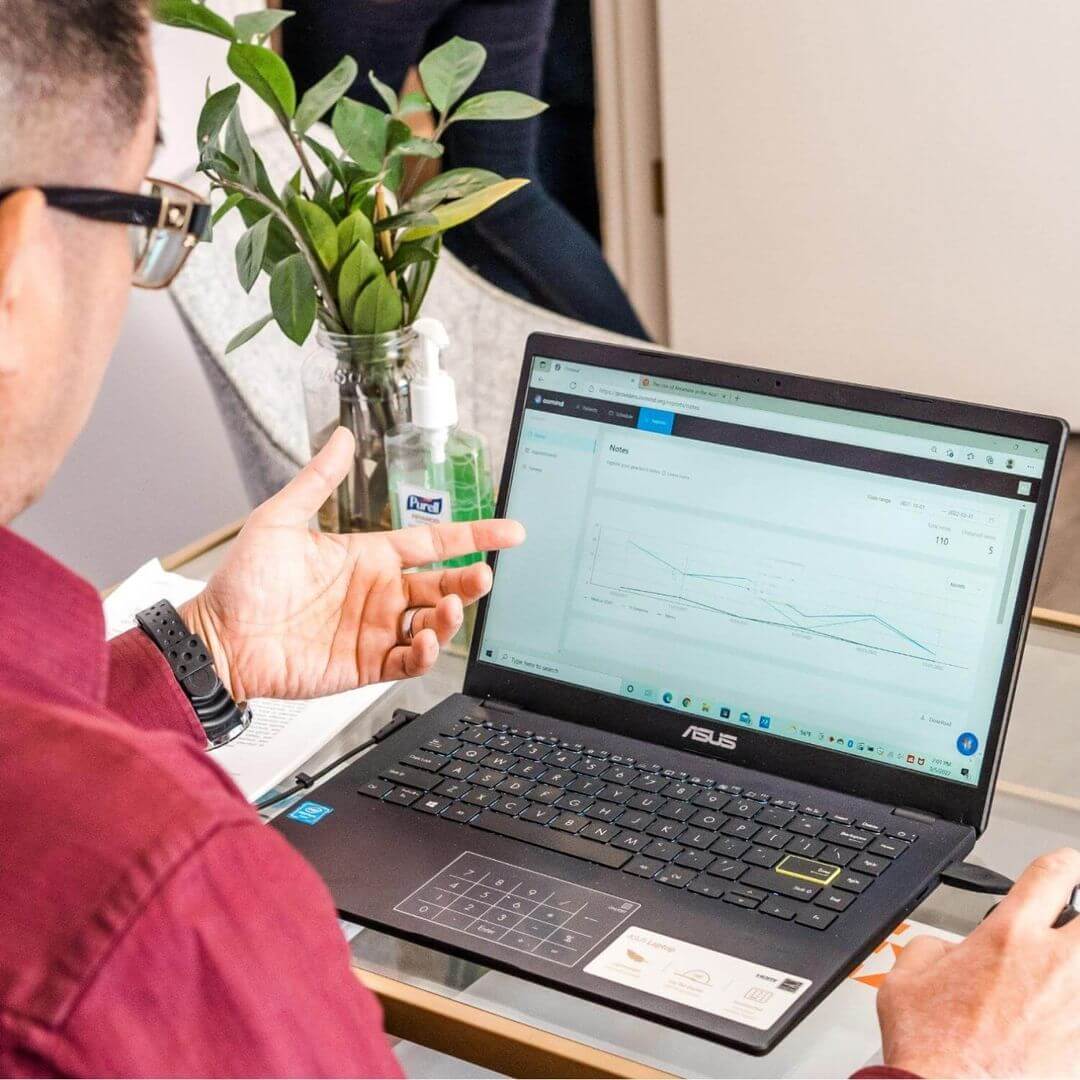Stories
Osmind: Building a Platform for Breakthrough Mental Health
 The Osmind system allows psychiatrists to provide better treatment to individual patients while also collecting real-world data to advance the state of care more broadly.
The Osmind system allows psychiatrists to provide better treatment to individual patients while also collecting real-world data to advance the state of care more broadly.
Lucia Huang and Jimmy Qian met in the fall of 2019 when she was an MBA student at Stanford’s Graduate School of Business (GSB) and he was pursuing his MD at the School of Medicine. Prior to attending the GSB, Huang had led operations at a neuroscience biotechnology start-up that was leveraging AI to realize better drug targets, and she had seen how neuroscience as a field was evolving to become more data-driven. Additionally, as Bay Area natives, Huang and Qian both had observed people around them struggling with depression, anxiety, and a host of other mental health issues. “It was especially illuminating growing up here and seeing what people our age were going through,” Huang said. The two talked about the mental health problem and changes taking place within the field; and the more they talked, the more they knew they had to help.
In 2020, Huang and Qian launched Osmind, a software company designed to bring precision medicine to psychiatry. In less than three years, Osmind has grown to include 70 employees who provide software to over 400 clinics in 45 states. To date, the company has raised nearly $60 million and has collected and published data that could improve the way mental healthcare is delivered to patients everywhere.
Well before founding Osmind, Huang and Qian worked together in a cross-disciplinary health information technology course at Stanford, during which they developed a close friendship. Huang also took the two-quarter Biodesign Innovation graduate class, offered by the Byers Center for Biodesign, where she learned and practiced a process for need-driven innovation in healthcare. Following this approach, Huang and Qian committed to talking to people on the front lines of mental health to deeply understand their most critical problems before devising a solution.
They spoke with numerous faculty member in Stanford’s psychiatry department and dozens of psychiatrists around the Bay Area. “We refined our thinking about why we have a mental health crisis, which has resulted in 9 million American adults with treatment-resistant depression. What we learned boiled down to difficulties in clinical practice and a lack of understanding of the disease to support the research and development of new treatments,” Huang said. “These user interviews helped us understand exactly the field is missing.”
At a more tactical level, psychiatrists told them about documenting treatment plans with pen and paper and about sending patients home with paper surveys to track outcomes. They also described the overwhelming volume of administrative responsibilities they faced and how this interfered with running their practices effectively. And they told stories about difficulties tracking patients between visits, and how the lack of reliable information negatively affected treatment.
 Members of the Osmind team celebrate their success to date.
Members of the Osmind team celebrate their success to date.
“Psychiatry is not data-driven, to no fault of clinicians or researchers,” Huang explained. “There isn’t enough data on what treatments work best for each individual or on best practices for delivering them. And researchers don't have an effective way of developing new and better treatments.”
One way to help, Huang and Qian realized, would be to improve the mental health infrastructure by empowering clinicians and researchers. For clinicians, this would involve building a new electronic health records (EHR) system that was tailored specifically for psychiatry. For researchers, it would mean leveraging the data collected through this system to provide insights that could help advance the science of mental health.
Using what they learned through their need research, the team at Osmind built a system that allows psychiatrists to more effectively run their practices, with clinical workflows tailored to mental health, insurance and FDA compliance automation for specific types of regulated treatments, and ways to measure and track better information on patient-reported outcomes and response to treatment.
Simultaneously, the software collects and tracks information that can be analyzed in aggregate to provide new insights for better treatment. Even at this relatively early stage in Osmind’s history, the company has collected more than two million patient outcomes and is using the data to better understand mental health interventions. For example, by evaluating aggregated and anonymized physician- and patient-entered information in the EHR, the team at Osmind was able to publish one of the largest real-world analyses of ketamine therapy for depression. Their research showed a 54 percent effectiveness rate for the treatment, and that after treatment suicide ideation ceased in a significant percentage of people. “We’re proud to have collaborated with researchers at Stanford Medicine on the paper, which was published in the Journal of Affective Disorders, to advance the standard of care,” Huang said. “We’re looking forward to continuing our work with researchers and other life sciences organization to support further innovation in mental healthcare.”
Since its inception, Osmind has been growing rapidly, and Huang and Qian are excited about the potential they have to make a meaningful difference in mental health. “Now more than ever,” Huang stated, “the world needs innovators to start companies in mission-driven spaces where people are really hurting.” In terms of other advice, she noted the importance of building a strong team, from employees and managers to advisors and investors. In particular, she said, “I just cannot emphasize enough the impact of having an amazing leadership team and how that has trickle-down effects to the rest of the team.”1
1 Vivien Ho, “Lessons from Lucia Huang, Osmind: Improving Mental Health Treatments with an Innovative HER,” medium.com, March 6, 2022, https://medium.com/pear-healthcare-playbook/lessons-from-lucia-huang-osmind-improving-mental-health-treatments-with-an-innovative-ehr-8ed98cc90a35 (January 4, 2023).
